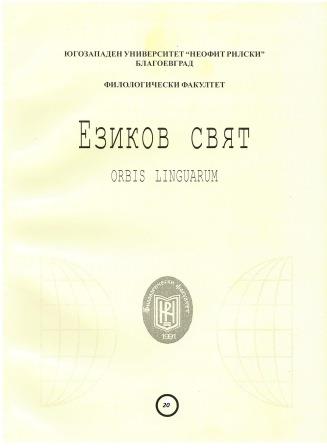THE PSYCHOLINGUISTIC BASIS OF MEDIA NEOLOGIZATION CAUSED BY COVID-19
THE PSYCHOLINGUISTIC BASIS OF MEDIA NEOLOGIZATION CAUSED BY COVID-19
Author(s): Dmytro Syzonov, Olga Zlotnyk-Shagina, Oleksandr KozynetsSubject(s): Language and Literature Studies, Theoretical Linguistics, Applied Linguistics, Lexis, Psycholinguistics
Published by: ЮГОЗАПАДЕН УНИВЕРСИТЕТ »НЕОФИТ РИЛСКИ«
Keywords: psycholinguistics; language neologization; media resource; media
Summary/Abstract: The article discusses the psycholinguistic reasons for the appearance of new language units in the Ukrainian language during the COVID-19 pandemic, theso-called ”infodemic” (Zarocostas 2020). In a short time, under the influence of extralinguistic factors, language innovations associated with COVID-19 have entered a wide range of media sources, the search for the reasons how these innovations function is the goal of analysis of both media and psycholinguistics. Three methodological bases were chosen, which helped identify the degree of appropriateness of the use of new words in a specific media context. During the pandemic, the media remains the main source of information: on the one hand, the media has a responsibility to inform promptly and truthfully, on the other hand, the degree of misinformation is increasing. Based on this, language innovations appear as psychological markers of time, allusively linked to the pandemic. We assume that the psychological opposition “trust / mistrust” to information also affects the appearance of neologisms, because they actually reflect the mood of society, and therefore the demand for language innovations will be particularly logical in the course of social transformations (as demonstrated by the comparative characteristics of the search engine at the initial stage and at the peak of the COVID-19 pandemic).
Journal: Езиков свят - Orbis Linguarum
- Issue Year: 20/2022
- Issue No: 1
- Page Range: 062-070
- Page Count: 9
- Language: English

